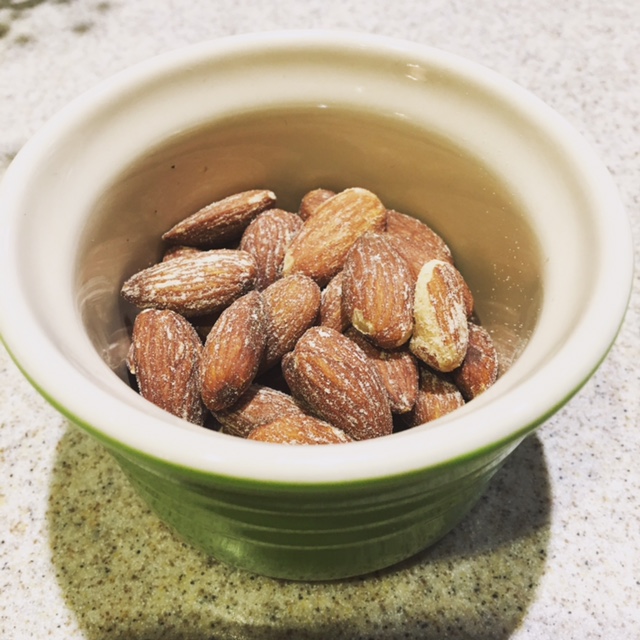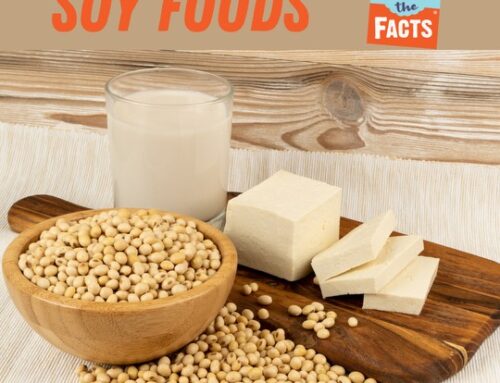 My husband has been an avid cyclist and triathlete for years. He won many races, and never spent money on a fancy energy or protein bar, or supplements, to do it. In addition to regular training, good food (hello – he’s married to me) and good hydration, some of the staple snacks in his repertoire include: Bananas, fig bars, yogurt, and nuts. And yeah, he never ate a low carb diet.
My husband has been an avid cyclist and triathlete for years. He won many races, and never spent money on a fancy energy or protein bar, or supplements, to do it. In addition to regular training, good food (hello – he’s married to me) and good hydration, some of the staple snacks in his repertoire include: Bananas, fig bars, yogurt, and nuts. And yeah, he never ate a low carb diet.
I caught up with the folks at Nuts.com to discuss the importance of refueling after a workout, and posed a few questions. Here’s what they had to say:
Q: How can protein help with sports performance?
A: Primarily, protein helps to build and repair muscles. During the course of a workout your muscles experience micro tears, and one of the many benefits of consuming protein is its ability to facilitate the recovery process because muscles are made of protein filaments.
You’re essentially replenishing the amino acid building blocks of your muscle tissue by eating protein. Branched-chain amino acids (BCAAs) are particularly important because they help preserve muscle tissue during high intensity exercise. The body cannot produce them on its own despite muscle tissue being made up over a third BCAAs, so they have to be ingested. BCAAs are essential to fighting muscle breakdown and fatigue, in addition to aiding in recovery. BCAAs can also be burned as energy during endurance workouts, however protein is not a preferred source of energy for the body during workouts.
Q: How much protein is optimal?
A: This question is a little more complex, in that it depends on the lifestyle of the individual and their fitness regimen. For an athlete, ten to fifteen percent of your daily calorie intake should consist of protein. There should be sufficient room in your daily calorie intake for carbohydrates and fats, so that your body has sufficient energy to handle your workout. It is not ideal for your body to have to burn protein. The Academy of Nutrition and Dietetics in conjunction with Dietitians of Canada and the American College of Sports Medicine gave these recommendations:
- Power athletes (strength or speed): 1.2 to 1.7 grams/kilogram a day
- Endurance athletes: 1.2 to 1.4 grams/kilogram a day
[So to put that in perspective folks – we’re talking about 110-150 grams protein/day for a 200 pound power athlete or 85-100 grams protein/day for a 160 pound endurance athlete]
Q: Is there a certain time you should ingest them?
A: It’s a commonly held convention that consuming protein during a workout has the added benefit of jumpstarting protein synthesis – the biological process of building new and repairing damaged proteins – but that claim hasn’t been backed up by any recent study. Staying hydrated, replenishing electrolytes, and ingesting carbohydrates are the most important things to consider during a workout to affect performance.
You should, however, consume protein before a workout in your regular diet and within three hours or so of finishing a workout. Immediately following (within 30 minutes of concluding) a workout you’ll want to have a nutritious snack with a mixture of carbohydrates and protein, with a larger ratio of unrefined/unprocessed carbohydrates at about four to one to replace the energy your muscles burned during your workout. Following your snack, within three hours of finishing your workout, you should have a more protein-rich meal.
Q: Carbohydrate is really important too – what do you suggest in terms of pairing carbs with protein?
A: Carbohydrates produce glycogen, your muscles’ preferred source of energy to burn during a high-intensity workout (Alternatively, your body burns fat during low and moderate intensity workout). If an athlete doesn’t replenish glycogen stores in the body, they can experience symptoms of hypoglycemia, which include extreme exhaustion and less commonly collapsing and hallucinations.
[the dreaded bonk]
These macronutrients are critical for optimal performance. The ideal amount of each depends on the individual athlete and their body’s needs at the time and your fitness goals. The general rule of thumb is to balance the ratio of carbohydrates and proteins at three or four to one, depending on your type of workout, be it endurance or power.
Q: Does every workout require a post-workout replacement?
A: Yes! Every workout should be followed by a post-workout snack or meal, plain and simple. Working out, especially at high intensity and long intervals means that your body needs to replace crucial glycogen stores and amino acids to get you through the rest of your day. It means the difference between feeling lethargic and droning at your desk after your morning spin class and having the energy to lead a meeting.




